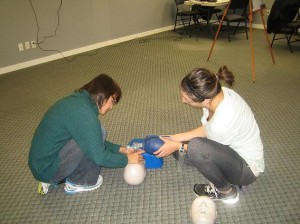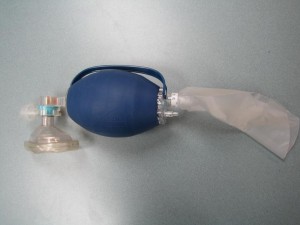
Over the past few years, our training provider – Las Vegas CPR – has seen the rise in popularity of CPR training programs. A lot of providers have opened in the country making these lifesaving skills available for anyone to learn. However, not all providers have the same quality of training as we do. All of the courses that we offer trainees are taught by certified instructors, with the curricula fashioned from the latest Basic Life Support guidelines from the American Heart Association. Whatever you learn from us will surely be the latest skills, techniques, and concepts.
Certification from our programs
If you need CPR training certification, you will get one from any of our courses. We award students with CPR training certificates once they complete both of these requirements: (1) complete attendance and (2) a passing grade on the certification exam (given at the end of training).
Certificates are only valid for two years. We require our trained rescuers to attend re-certification classes to renew their certificates. However, we do not allow rescuers with expired certificates to apply for re-certification; they have to retake the training program.
CPR and and first aid training
When you sign up for any of our courses, you will learn how to give basic CPR and first aid to victims in a variety of emergency situations. We offer students basic courses and advanced courses for laypersons and healthcare providers. Basic Life Support (BLS) courses can be taken by laypersons but Advanced Life Support (ALS) courses can only be taken by people in healthcare, either providers or allied health students.
Basic Life Support

Basic Life Support teaches trainees about three basic CPR skills: chest compressions, rescue breaths, and defibrillation. Trainees practice on the latest mannequins and AEDs. Only one of the BLS programs are for laypersons, while the rest are for healthcare providers.
- Basic CPR and AED – 4 hours, general public; curriculum: one-person rescue, basic first aid, and defibrillation training
- Basic CPR and AED (C) – 4.5 hours, healthcare providers; curriculum: same as the basic CPR and AED course
- Basic Life Support for HCPs – 4.5 hours; curriculum: one and two-person rescue, Basic Life Support guidleines, first aid, and defibrillation training
Advanced Life Support
Advanced Life Support courses are tailored especially for healthcare providers. HCPs are required to have a Basic Life Support for HCPs training certificate before they apply for ALS training. A pre-test is also given to the trainee before he or she can continue with ACLS and PALS training.
- Advanced Cardiac Life Support (ACLS) – 16 hours (2 days), healthcare providers; curriculum: basic CPR and medical management of adult patients
- Pediatric Advanced Life Support (PALS) – 14 hours (2 days), healthcare providers; curriculum: basic CPR and medical management of pediatric patients
Enrol in a program through the Las Vegas CPR website’s application form. It is available all day and can be filled out at any time.